Like the moment when Archduke Franz Ferdinand was taken out because his assassin stopped for a sandwich, some small moments in history can have absolutely incredible impact. While most things in the world take place because of boring and tedious work done over decades, there are those times when things hang in the balance, and the wrong move can alter the course of history forever. Below are several scenarios where the history of the world changed in a very short span of time – if these things had happened differently, we could be living with a very different world today.
10: James Comey Releasing The Final Report About Hillary Clinton
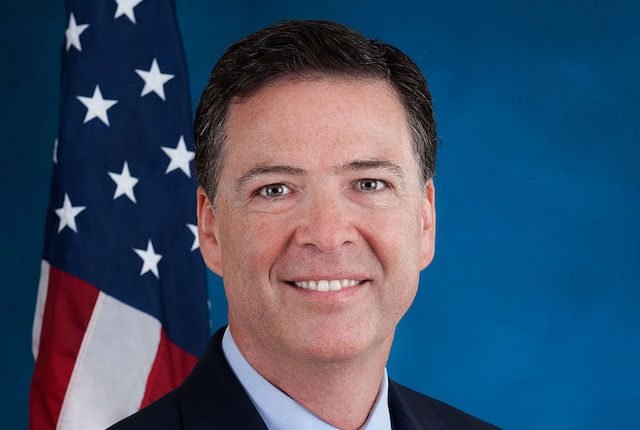
Certainly, there are many factors involved in the recent election that caused it to come out the way it did, and no one can say that Hillary Clinton was an incredibly strong campaigner. However, when it got close to the end, most of the polls said that Hillary Clinton was going to win handily, and yet somehow she did not manage to do so. In fact, while locking up the popular vote, she lost the Electoral College by quite a lot. Some of the reason for her inability to cross the finish line at the end is that her candidacy was not the most exciting, but the folks at FiveThirtyEight, who perform statistical number crunching of elections, believe it was at least the final straw.
They believe that the final Comey letter about Hillary Clinton, her “October Surprise” as it were, was essentially the straw that broke the camel’s back. After all the various election ads against her, and all the various things that she was questioned over such as Benghazi, a final suggestion that she was once again being investigated, after it was supposed to be over, likely tipped the final scales in favor of Donald Trump. While we cannot know for sure how Hillary Clinton would have governed, it is safe to say that she would have had a very different presidency from Donald Trump, and left a very different mark on the world.
9: The Assassination Of Abraham Lincoln
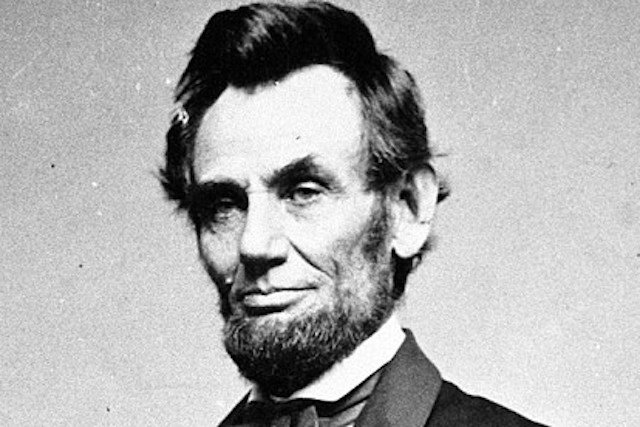
Just weeks before the American Civil War came to a close, Abraham Lincoln found himself inside Ford’s Theater to relax and take in a show. Then, as we all know, the actor and southern sympathizer John Wilkes Booth shot Lincoln in the head and ended the second term of his presidency early. Unfortunately, while Booth shot Lincoln in the head, he may have also shot himself, and the South, in the foot. The problem is that right after the Civil War, Lincoln’s plan was to try to get the South rebuilt, forgiven and friendly with the North again as soon as possible. He wanted true reconciliation and reconstruction, and he didn’t want to waste any time. However, the so-called radical Republicans in congress wanted stricter measures against the South, for which the South didn’t want to cooperate.
Then Andrew Johnson, Lincoln’s successor, was much more of a Southern sympathizer, which meant that the radical Republicans did not want to work with him on Southern reconstruction, or really on anything. This led to an atmosphere where, instead of both sides working together to rebuild and reconcile, the South tried to get away with as much as it could, and the North tried to punish them for past crimes. This eventually led to Andrew Johnson’s impeachment, and poor leadership that caused the Jim Crow South to be an issue to this very day. The South is still a bit of a mess, all because one angry Southerner’s misguided desire for revenge caused him to take out the man with the plan and influence to fix it. And while some may think Lincoln couldn’t have done it, there is evidence that Lincoln already had support for plans similar to those presented by Andrew Johnson, but that support was withdrawn when Johnson was sworn in, because many politicians did not want to work with a Southern sympathizer.
8: The Yalta Conference Reinforced Soviet Hegemony In Eastern Europe
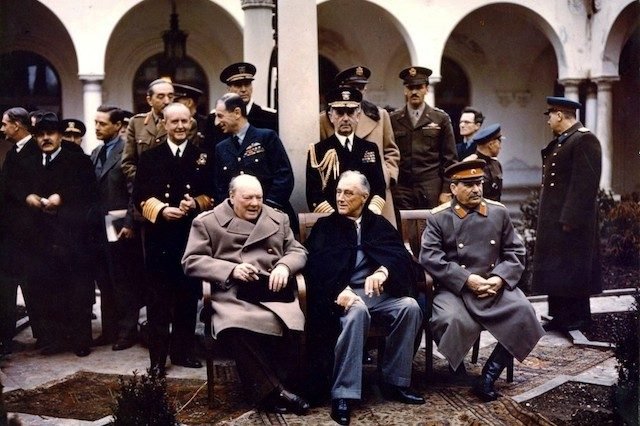
The Cold War raged up until very recently and if you asked some, it never ended at all. Certainly, even if it did end temporarily, it would seem that a serious conflict with the Russians is nearing again. People are once again getting worried about a violent and global domination-hungry Russia, and tensions have not been higher since the early days of the Cold War. However, it is possible all of this could have long ago been avoided, or at least been very different from how it is now. At the Yalta Conference, in the final discussions between the three major allied leaders, Franklin Roosevelt was nearing the end of his life, and his skills as a negotiator were greatly slipping.
It was said Winston Churchill could not convince Stalin (and did not get along with the man), but Roosevelt was able to get on with him as a friend and equal, and get a lot out of him in terms of negotiation. Experts say that at the Yalta Conference, Roosevelt was exhausted and gave away far too much to Stalin, basically giving away the Eastern European countries that went on to be held by the Soviet Union for decades. While Stalin already held some of the territory, Roosevelt basically gave it up without a fight. If he had managed to get Stalin to back off from much of Eastern Europe to begin with, Churchill may never have given his Iron Curtain speech, and we may not have a man like Vladimir Putin today who thinks half of Europe belongs to his country by birthright.
7: The Challenger Disaster Was Caused By A Dangerous Few Moments Of Groupthink In A Single Meeting

The Challenger was set to launch, and people were incredibly excited to see it, with NASA promoting it as much as possible. Then, disaster struck. After watching the shuttle explode on national TV, with school children watching around the country, it turned out that the issue was a faulty o-ring that messed up the heat seal and caused the whole thing to be consumed. Immediately many people wondered how the shuttle could go up like that at all. After all, there were procedures in place to test every last part down to the last decimal to make sure there were no issues.
However, it quickly turned it that it did indeed come down to human error. At a meeting the issue of the o-ring had been brought up, but those who were in charge of the meeting seemed uninterested in seriously discussing it, and even though many in the meeting knew it needed to be discussed more for safety, they did not want to upset their superiors. In the end, the meeting became such a perfect example of the psychological phenomenon of groupthink – where people make bad decisions to not rock the boat in a group, even when they know the decision is catastrophically terrible – that mock ups of the meeting have been made using professional actors, in order to help teach the concept to psychology students.
6: The Hessian Commander Neglected A Note Saying George Washington Was Crossing The Delaware
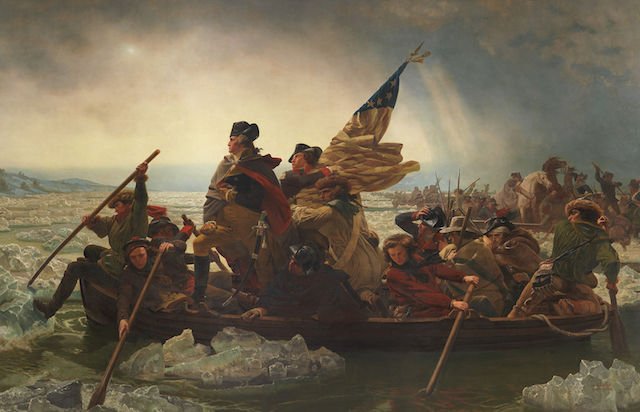
The Crossing of the Delaware is one of the most famous moments in the American Revolution, and has been immortalized with an incredibly famous painting, which stirs the imagination of the bold deed performed by George Washington and his men, in order to take the enemy off guard when they were at their most vulnerable. It was a crucial point in the war that we all know very well, and it could have turned out very differently if the Hessian Commander had taken the warnings he got more seriously.
The Hessian Commander was found much later with a note that told of Washington planning an imminent attack, something a spy had slipped the commander days before. However, he did not take the warnings particularly seriously, and was caught up not properly prepared when Washington came for him and his men. Part of the issue was that they were constantly being harassed by local militias, which made things more chaotic when the full attack from the Colonials arrived. However, the simple fact of the matter is that if the commander had prepared himself for a full blown attack (not just from the local militias, but from Washington) and stayed alert, the entire plan may have been foiled.
5: Andrew Wakefield’s Fake Anti-MMR Study Is Causing Deaths To This Day
Andrew Wakefield
is a man who has more blood on his hands than most people who have ever been called a doctor – which he isn’t anymore, because he was kicked off the medical register in the UK for his fraudulent nonsense. Back in the late 1990s Wakefield published a fraudulent medical paper that he was later forced to retract, claiming that vaccines caused autism in children. Despite the fact that the study was swiftly disproven, and Wakefield shown as the scam artist he is, this is still causing horrible problems to this day.
His paper was a catalyst that started a movement, now endorsed by multiple celebrities, to not vaccinate your children. This nonsense has already led to outbreaks of measles in the United States, and has led to more bouts of whooping cough and other potentially deadly diseases that we had previously had under control. Just one fraudulent scientific paper is causing increased deaths decades later, due to so many people that listened to bad medical advice, and decided to embrace conspiracy theories. Unfortunately, it’s hard to convince these anti-vaxxers to protect their children and everyone else’s, because anti-vaccine believers tend to have a cult-like mindset. If you believe that vaccines don’t cause autism, in their mind, you are a part of the big cover-up, or a sheep unwilling to see the truth.
4: President Truman’s Controversial Decision To Launch Two Atomic Bombs On Populated Cities

The bombing of Hiroshima and Nagasaki is a moment in history that will remain in infamy forever. Some people defend it saying that at that point, nothing less had any chance of convincing the Japanese to surrender peacefully, and that otherwise we would have had total war that led to way more deaths on both sides overall. Others would argue that the Japanese were already low on resources and morale, and we could have possibly worked out a peaceful surrender from them without dropping two giant bombs on populated cities.
However, whether you agree with the decision or not, it was an historic moment that forever shaped the globe. Since then nuclear paranoia set in, and countries immediately started racing to build as many of their own and test them all over the world, releasing untold amounts of radiation. This global arms race persists today, where many people still face the possibility of nuclear annihilation daily, and are only comforted by the fact that nuclear war would be unlikely to happen because it would be a no win scenario.
The world could possibly have been a very different place. Even if nuclear testing had continued in various countries, without the historic example of heavily populated cities being leveled in a moment, the true paranoia we see today would likely not exist – we might have had a world where people knew a nuclear weapon existed, but didn’t particularly fear them and feel so paranoid, because they had no proper context in which to put a real life nuclear attack.
3: Teddy Kennedy’s Actions Immediately Following Chappaquiddick Ruined His Presidential Dreams
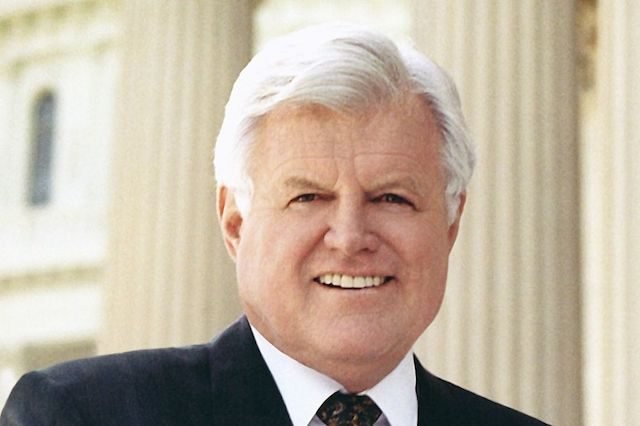
Most people have heard of Teddy Kennedy, one of the three original Kennedy brothers and often called the lion of the senate. Some wondered, as he got on in years, why he never sought the presidency, and the answer is that he once did, and ended up being sunk by his own actions. Back when he was younger, he was a very powerful up and coming politician, and was indeed running for president. He was charismatic, had a lot of support, and likely would have won the Democratic primary, with a good chance at the general election. And while we cannot know exactly what kind of policies he would have had, the Kennedys never did anything small, so it is certainly likely he would have had a strong historical impact as president. However, just as his star was as bright as it could be, he got himself into big trouble.
He was out with a woman in his car on Martha’s Vineyard in Massachusetts, when the car crashed over a bridge into the water. He managed to make it out of the car, but not with the woman – Mary Jo Kopechne. He did not notify the police until many hours later, and not until after he had had a good talk with his lawyers about how he could get out of trouble. Many speculated that he did not go to the police immediately or report it because he was drunk and wanted to sober up – he suspected he would be arrested for things like manslaughter and drunk driving if he went to the police right away. Still, he was a Kennedy and they were known for being playboys, he could have potentially managed to avoid it sinking his political career if he had went straight to the police, but the way he handled the incident sunk him. Most people were rather disturbed how callously he left the woman to die.
2: Reagan’s Firing Of Over 1000 Air Traffic Controllers Has Had Lasting Repercussions For All Unions
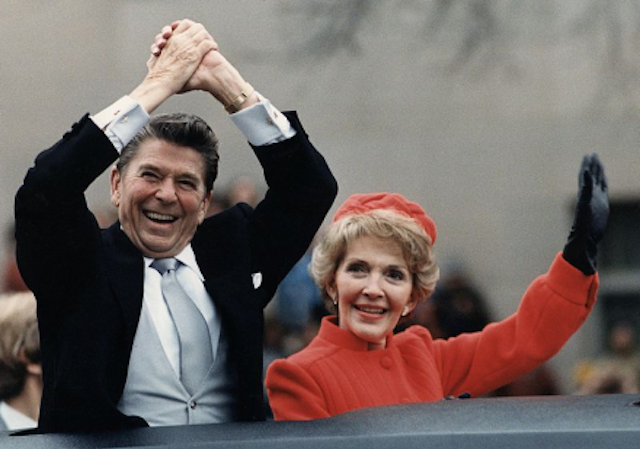
Many people do not remember the firing of the air traffic controllers under President Reagan, but it still has vast ramifications to this day. The short version of the story is that the then-union for the air traffic controllers was on strike for better pay, and the negotiations were simply not going very well at all. Both sides kept going back and forth, and an agreement was not being put in place quickly enough. Fed up with the entire thing, President Reagan declared it an illegal strike and threatened to fire each and every single one of them if they didn’t stop striking. Unfortunately for them, they called what they thought was a bluff. It wasn’t, and they were all fired.
At first people thought this would be a huge disaster, because air traffic controllers are really important, but he put in military controllers until others could be trained and everything worked out okay. This was a huge blow to unions in general and greatly set them back over the years. However, this wasn’t necessarily something Reagan would have wanted. He didn’t think unions in general were bad or that workers shouldn’t have rights, but he saw a situation where these were vital jobs that absolutely must be filled, and the terms could not be agreed upon. He saw it as an extreme act in an emergency – he did not plan to break the backs of labor unions.
1: Colin Powell’s False Presentation About Iraq Got Us Into War With A Potential Ally
Colin Powell’s presentation about WMDs before congress will go down as one of the most pivotal moments in history. Now, there is some debate and confusion as to whether Powell was simply being used, or was complicit in what was happening. Either way, an incredibly false and misleading presentation made it look like there were WMDs in Iraq when there actually were none at all. This led the United States into a full blown war in Iraq that has had lasting ramifications to this very day. And to make matters worse, there is reason believe that if we hadn’t taken out Saddam, we may have had a stable ally in the region who could have been of great help.
When Saddam Hussein was captured, he explained that he was actually shocked and confused that Iraq was attacked. He thought that the United States would want to ally with him to help find terrorists after what happened on 9/11, and didn’t understand why he was a target when none of the terrorists were from Iraq. He had thought he could help us and that what happened would bring Iraq and the United States closer together. While some may believe Saddam to be brutal, he kept the region stable, something we have been unable to accomplish. If Saddam had remained in power and his words are to be believed, we may have had both a stable Iraq and a solid and stalwart ally in the region.
your vote is complid
please follow me and follow back.
I am a active parson
Downvoting a post can decrease pending rewards and make it less visible. Common reasons:
Submit
Hi! I am a robot. I just upvoted you! I found similar content that readers might be interested in:
http://www.toptenz.net/10-historical-moments-changed-everything.php
Downvoting a post can decrease pending rewards and make it less visible. Common reasons:
Submit
very interesting article! so many things most of us have no idea about.
upvoted you and following
Downvoting a post can decrease pending rewards and make it less visible. Common reasons:
Submit